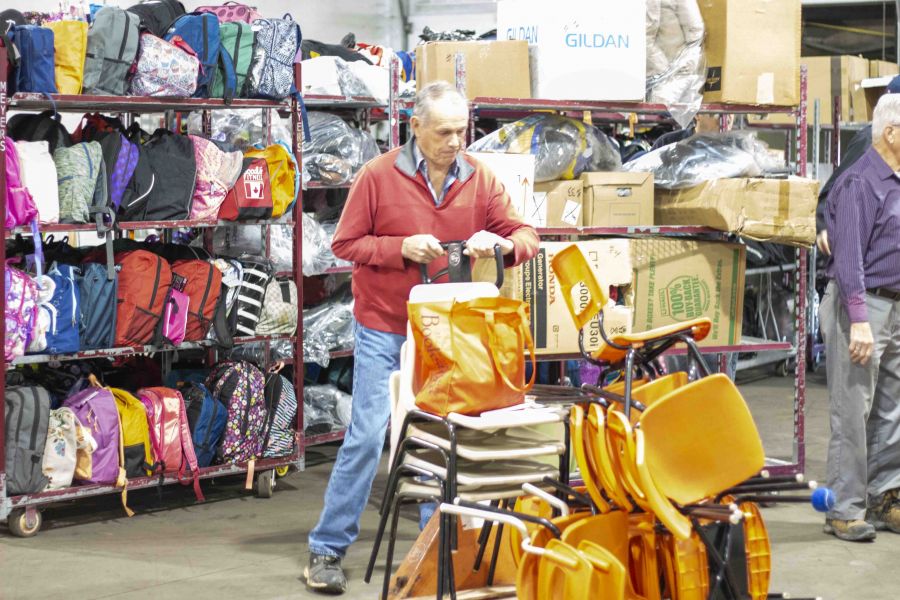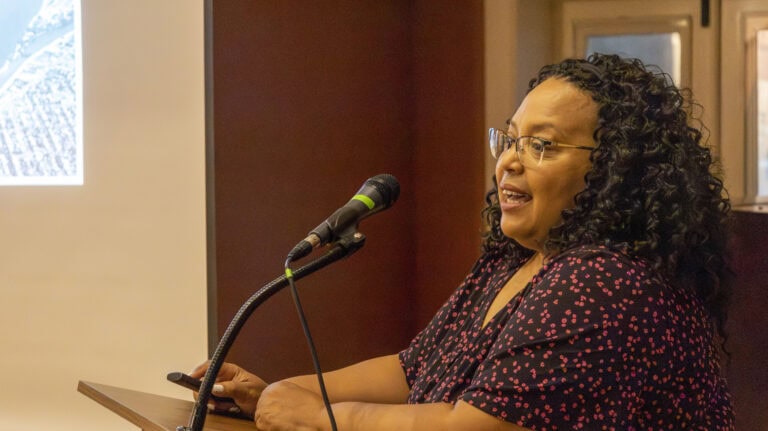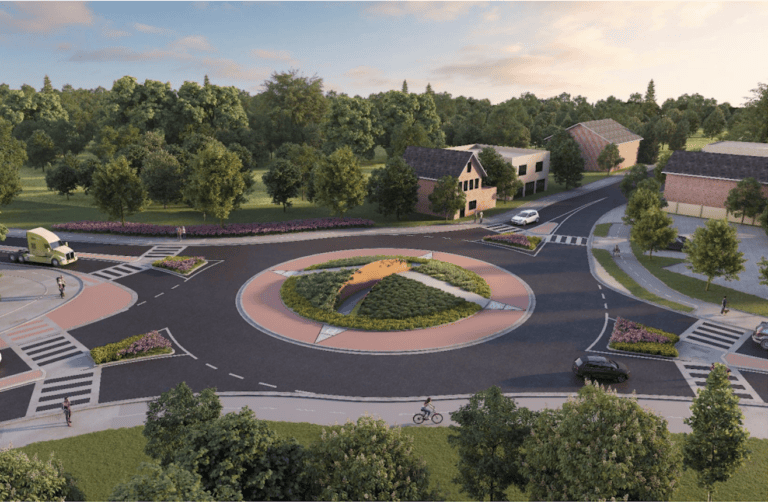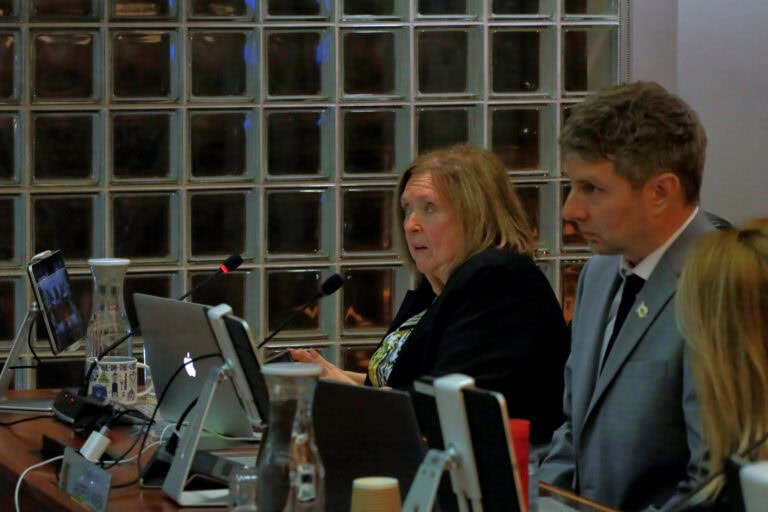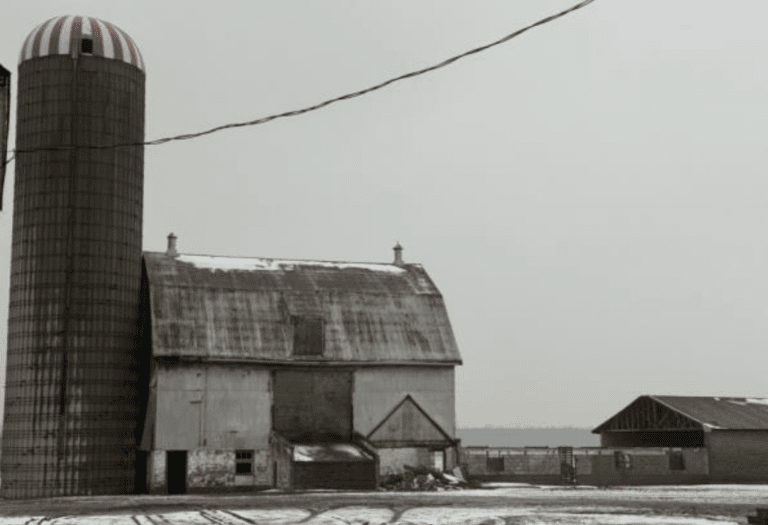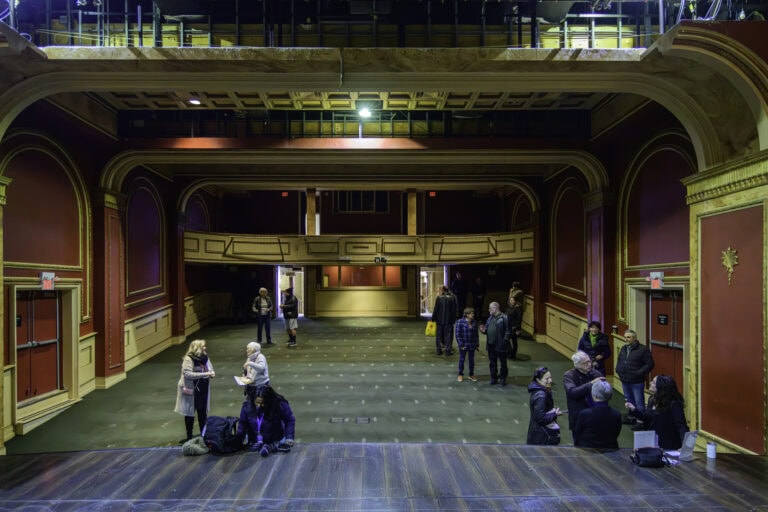It starts with humble spirits and ends with a shipping container leaving Niagara-on-the-Lake, destined to change lives forever.
That’s the goal for Wells of Hope volunteers, who spend the whole year tracking down useful items to send to the poor mountain regions of Guatemala, where the adage rings true: one man’s trash is another man’s treasure.
On Monday, Dec. 30, one of those containers left Meyer’s Fruit Farms on Irvine Road packed with school desks, chairs, medical supplies, firefighting equipment, backpacks, bicycles, tools, clothes and 52,000 dry, packaged meals.
“It’s a major operation,” says Wells of Hope chair Scott Maxwell.
It takes about 50 people two days to make it happen. First, the items are brought to Meyer’s, so volunteers can sort and label them, then there’s the heavy lifting of loading a container with as much as it can possibly fit, like a game of Tetris. This year the contents of two transport trucks were packed in.
“Behind the scenes, there’s another 20 or 30 people that collect things all year long, do all the manifests, all the paperwork,” Maxwell says. “That’s a going concern. That it has to be done exactly and correctly.”
If a container isn’t properly packed, it can cause delays and problems at customs. In the past, the charity faced trouble when a bag of sugar somehow made its way into the shipping container. Sugar is forbidden from being imported into Guatemala, and the mistake held up the shipment or months, Maxwell says.
“We even had to apply some political pressure to get it released,” he says.
If the sorting and packing isn’t enough work, before any of that happens, volunteers are tasked with choosing what will go in the crate. Maxwell says the group tries to find items that are going to affect as many lives as possible.
“Because our shipping costs are so high, we want to ship things that are valuable and necessary, not just things that people in Niagara are casting off. The first thing is we ask is, ‘What do the mountain people need?’ Instead of us guessing at what we think their needs are, we ask them what their needs are, and then we try to be as selective as we can to try to provide that.”
The tools they give away are in many cases “the first tools that people actually own personally,” he says.
“They don’t actually have tools of their own, so the fact that we’re giving them things like lineman’s pliers to do fencing and wire fencing and things like that are tremendously important.”
He says the tools often affect more than one person’s life, because the people there will lend and borrow a tool when needed.
Wells of Hope has also built schools, bridges and, of course, water wells. What it builds is also driven by a direct need in the chosen community.
In Guatemala, children often face challenges and dangerous conditions even getting to school, so in 2019 the charity built a bridge to help them cross a dangerous river that had claimed the lives of two children.
With unsanitary drinking water being a leading killer globally, the group also drills wells to access clean water for communities. Education also is a priority, as a generation of well-educated children can benefit an entire nation.
“This year the emphasis was school desks and chairs,” Maxwell says. “It’s not enough just to build the walls. You’ve got to also provide the desks and chairs.”
Along with about 170 chairs and 80 desks, the group sent 550 backpacks, too.
“For the backpacks, I mean that’s a Christmas that many of the kids won’t get, so it’s something that’s very special that way. But it also demonstrates our continued support to the schools that we’ve created that we provide the backpacks to those schools. Same way that the schools that we’ve expanded, we try to furnish them the best we can with desks and chairs.”
He says the group is also getting into curriculum development, and hopes to put a library in each school as well.
It costs Wells of Hope about $8,500 to send a shipping container, Maxwell says. And that is less than it would cost a company sending products to sell. Wells of Hope is able to ship the container tax- and duty-free after verifying the shipment with Caratis, the economic arm of the Catholic church.
“If it wasn’t, we couldn’t afford to actually pay the importation tax on it,” he says.
The group also ships one container per year to help people in the cities of Guatemala.
“It’s a year-long process,” Maxwell says, and it takes a community to pull it off.
“Meyer’s Fruit Farms is essential to the success of what we do. Because they allow us to use the facility over a number of days, we can inventory everything properly, collecting it from various locations and then make sure that the manifest is as correct as possible and then ship it all out in a fairly efficient time. Today we did it in two and a half hours.”
From the loading dock, the container heads to Montreal to be put on a ship, and then travels directly to Guatemala, where it’s brought by a truck to Wells of Hope’s permanent camp and distributed by volunteers there.
Marcel VanRuyven has been to Guatemala six times to help out.
“What we in our society might consider to be rubbish is extremely valuable to them, and reusable. Just because it’s got a scratch or it’s dirty or it’s out of style doesn’t mean it doesn’t serve an extremely valuable purpose,” he says.
On one trip there, the volunteers were building a school to replace one whose walls were corn stalks tied together, with a loose piece of plastic overtop for the roof, he says.
“And underneath were like crates and things that they used for desks. We built them a new concrete school with a steel roof and that provided them an environment where their books didn’t get wet. When the rainy season came they were able to continue going to school. And these desks afford them a great deal of comfort. The more comfortable you are, of course, the less that’s distracting you from being able to learn.”
From that perspective, he says, the stuff Wells of Hope sends down is “pretty important.”
He says he has directly seen the impact on people’s lives, though Guatemalans are enduring.
“You know what, you don’t need to bring them stuff to put a smile on their face. The funny thing is, with the little they have, they’re almost always smiling anyhow. Whereas when you look around our society, kids have got everything and they’re not smiling a bit.”
“We bring them a soccer ball and they’ll run out in the field. And what they typically might use for a soccer ball is tape wrapped around an old sweatshirt or something.”
“It’s very humbling,” he says. “It’s life-changing when you experience it. You walk away and you just shake your head. You realize how good you have it.”
Anyone wishing to help out can sign up through the Wells of Hope website at www.wellsofhope.com and can volunteer specifically if they have skills and attributes they think can be of use.
“But you can also help a great deal just by going on to our website and volunteering to be part of the newsletter,” Maxwell says.
“The newsletter is quarterly, and it regularly communicates what’s going on and how people can specifically help with our three fundraisers that we run throughout the year, as well as the different drives that we do.”



